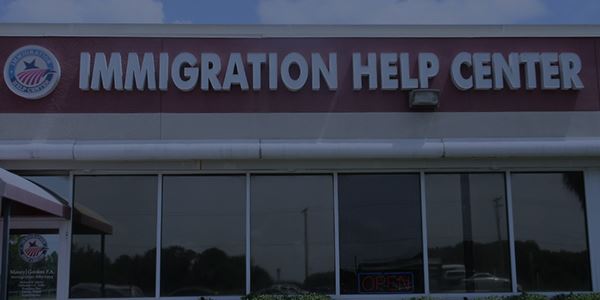For conditional permanent residents, removing conditions on residency is a critical legal step toward securing permanent residency in the United States. This process requires demonstrating that a marriage is genuine and not simply for immigration purposes. Understanding the requirements and potential issues can help you prepare an application that avoids common pitfalls. Proper documentation, timing, and legal knowledge are key to a successful petition.
Understanding Removal of Conditions Petitions
Definition and Purpose of Removal of Conditions Petitions
A removal of conditions petition enables conditional residents—typically those who obtained residency through marriage—to transition to full permanent residency. Its primary goal is to show that the marriage was entered into in good faith. This process involves submitting evidence such as joint financial accounts, property ownership, and affidavits and adhering to strict timelines. Missing the required filings or presenting inadequate proof of a genuine marriage can result in residency termination and possibly deportation. Successfully fulfilling this step solidifies legal status and allows access to opportunities like naturalization.
Eligibility Criteria for Filing
Eligibility centers on proving that the marriage was genuine and not meant to circumvent immigration laws. Conditional residents must provide evidence of shared financial and personal lives, like joint tax returns and leases, while the petition must be filed within the 90-day period before conditional status expiration. If the marriage has ended due to divorce or death, additional proof of the circumstances may be required. Filing on time and with sufficient evidence ensures a smoother transition to permanent residency.
Common Reasons for Denial
Insufficient Evidence of Bona-Fide Marriage
Applications often fail due to a lack of strong evidence proving the marriage was genuine. Required documents include joint bank statements, tax returns, property ownership, and affidavits from people familiar with the couple. Failing to provide consistent and thorough documentation can raise concerns about marital authenticity. USCIS officers look for substantial proof that reflects a shared life. Presenting a detailed and organized application reduces the risk of denial.
Failure to Meet Filing Deadlines
Missing the strict 90-day filing window to remove conditions petitions leads to automatic residency termination and possible deportation proceedings. While exceptions for late filings exist, they require compelling reasons like medical emergencies. Filing early and sufficient preparation ensures petitions are submitted on time, preventing unnecessary delays or risks to one’s residency status. Timely actions are critical to avoid complications.
Incomplete or Incorrect Application Forms
Incomplete or inaccurate applications result in immediate rejection or delays. Every detail, from personal information to supporting documents, must be correct and consistent. Mistakes often arise from overlooking instructions or rushing the process, which may cast doubt on the applicant’s case. Seeking professional help ensures your application is thoroughly reviewed and free from errors, increasing the chances of approval.
Legal and Procedural Challenges
Navigating Requests for Evidence (RFEs)
Receiving a Request for Evidence (RFE) isn’t a denial but a request for additional proof. Applicants must provide thorough responses to address any gaps or concerns USCIS finds in their submissions. This might involve submitting updated financial records, photographs, or testimony validating the marriage. Quick and comprehensive responses can resolve the issues and keep the application process on track.
Understanding the Role of Interviews
Interviews are sometimes required to confirm the authenticity of a marriage. Applicants should be prepared to answer questions about their relationship and provide additional supporting documents if needed. Consistency and honesty during an interview are essential to avoid raising concerns. Proper preparation helps applicants present a convincing case to immigration officers.
Strategies to Avoid Denial
Compiling Comprehensive Documentation
The strongest way to avoid denial is by submitting clear and comprehensive documentation that establishes a shared life. Evidence should include joint financial accounts, property records, and living arrangements. Consistency and attention to detail in your records leave less room for doubt. Organizing this evidence thoroughly makes it easier for USCIS to review and approve your petition.
Seeking Legal Assistance
Legal assistance can help applicants understand the removal of conditions process and avoid common mistakes. Immigration attorneys offer guidance on submitting complete and convincing applications, ensuring accuracy at every stage. Hiring a skilled attorney eases the complexity and increases the chance of a favorable outcome, particularly in difficult cases.
Proactive Communication with USCIS
Staying in regular communication with USCIS helps applicants address any issues before they escalate. Timely responses to requests or updates ensure that the process continues smoothly, showing commitment to a successful resolution. Maintaining an open line of communication supports your case during every step of the petition.
Addressing Denial and Next Steps
Understanding the Denial Notice
A denial notice will outline the reasons for denial in detail. Applicants should review it carefully to identify the specific issues and determine how to address them. Resolving the concerns by submitting new evidence or correcting mistakes is possible, but it’s essential to fully understand the denial notice to strategize the next steps effectively.
Filing an Appeal or Motion to Reopen
Applicants may file an appeal or motion to reopen in light of new evidence or clarifications that strengthen their application. Each option follows strict deadlines and requires preparation to argue your case effectively. A qualified immigration attorney can guide applicants through this complex process.
Exploring Alternative Immigration Options
If a denial persists, other immigration pathways can still provide opportunities. Options might include work, student, or family-based visas tailored to the applicant's qualifications. By consulting an immigration attorney, applicants can explore alternatives and find the next best route to residency in the U.S.
Tampa Removal of Conditions Lawyer
The removal of conditions process is vital for conditional residents to achieve permanent residency, but it comes with legal complexities that can feel overwhelming without the right approach. By understanding common pitfalls, filing correctly, and staying proactive, you can enhance your chances of success and avoid unnecessary challenges.
At Maney | Gordon | Zeller, P.A. in Tampa, FL, our experienced immigration attorneys provide the comprehensive support you need throughout this critical process. From compiling evidence to guiding you through interviews or addressing denials, we are here to help. Contact our Tampa office today at (800) 708-4399 to schedule a consultation and ensure your path to permanent residency is as seamless as possible.







